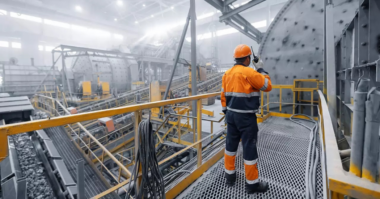The Electrical Apparatus Service Association (EASA) announces its Spring 2023 training seminar schedule. Offered in various locations around the United States, EASA’s industry-specific training pools more than 100 years of rotating equipment knowledge from EASA’s technical support staff. Participants have an opportunity to interact face-to-face with the presenters, as well as each other. Seminars offered include:
- Fundamentals of DC Operation and Repair Tips – March 10-11, 2023, in Dallas, TX. The seminar will cover DC machine theory and operation, as well as repair tips. Topics will include testing and winding of armatures, fields, interpoles and compensating windings, machine work, balancing, assembly and final testing. The theory portion is structured so that it can be grasped by entry-level personnel, while the overall material is in-depth enough that those with 30 years of experience or more will benefit
- Fundamentals of Pump Repair – March 24-25, 2023, in St. Louis, MO. The seminar will cover
the common repair procedures for centrifugal pumps, including submersible pumps, vertical turbine pumps, single stage end suction pumps and split case pumps. The procedures are also applicable to other style pumps. For each type of pump, the inspection, disassembly, evaluation, repair and reassembly functions are presented. Pump test procedures will also be discussed. - Principles of Medium and Large AC Motors – NEMA – April 28-29, 2023, in Atlanta, GA. The program covers horizontal and vertical squirrel-cage induction motors in the 300 to 5,000 horsepower range, low- and medium-voltage, including how they work, specific information on enclosures, construction of components and applications. Many of the principles included apply to all AC motors, especially those with accessories that were associated with larger machines in the past (such as encoders, RTDs, thermostats, space heaters, vibration sensors, etc.).
- Root Cause Failure Analysis – 2nd Edition – May 5-6, 2023, in Cincinnati, OH. One of the most important factors to consider is why a motor failed. This seminar explores the cause of motor failures from the most common to the unusual. A methodology for identifying the most probable cause of failure is presented. An extensive resource manual includes hundreds of photos of a wide range of failures, with the likely causes listed, and a clear methodology for confirming the probable cause of each failure.
These seminars are open to EASA members and non-members. For more information or to register, contact EASA by phone at +1 314 993 2220 or online at easa.com/training.
Recognized internationally as the leader in the electromechanical sales, service and repair industry, EASA provides an ongoing flow of industry information and education that helps its 1,700 members in nearly 70 countries enhance their performance and achieve greater levels of success on behalf of their customers. EASA supports its members through its engineering consultation program, industry-specific training, business information, networking activities and exclusive technical resources focused on the sale, service and maintenance of motors, generators, drives, controls, pumps and other electromechanical equipment.




